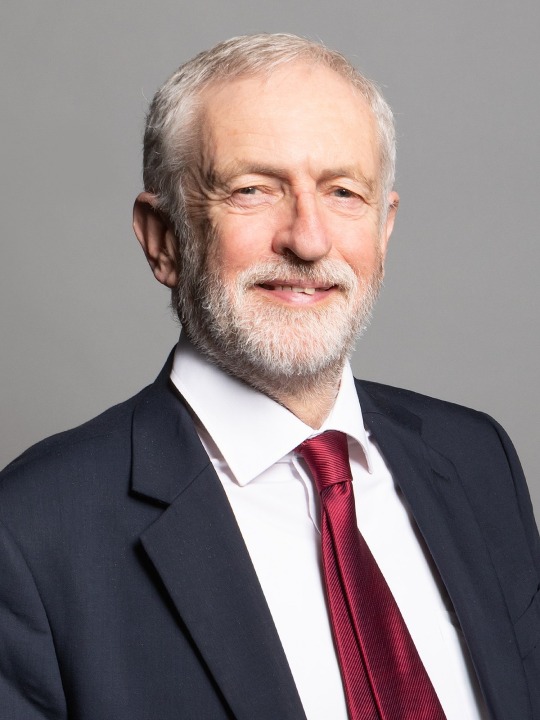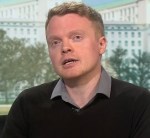#independent mp
Explore tagged Tumblr posts
Text
Your least favourite mp's least favourite mp

#does this even make sense#grammar isn’t my strong point#lmao#your favorite artists favorite artist#mps#politics#british politics#i hate politicians#i think they’re all cnts#however#him!!!#he’s just incredible#uk politics#the uk will never redeem themselves from 2019#we could of had it all#jeremy corbyn#independent mp#labour mp#labour leader#oh jeremy corbyn oh jeremy corbyn#the greatest thing that never was#the people’s princess#anyone who isn’t aware of this man’s game should google him#every single thing you read will make you love him more and more#and he was ousted by the centerist left for being to socialist#and it’s truly the greatest loss the labour party has ever faced#anyway#:(
18 notes
·
View notes
Text

Ladies and gentlemen, the Independent MP for Islington North!
#Ladies and gentlemen#the Independent MP for Islington North!#independent mp#islington north#islington#political#politics#politicians#government
1 note
·
View note
Text

#han jisung#stray kids#skz#fanmeet no4#mp#i am an independent woman until i take one look at him. all down the drain.
281 notes
·
View notes
Text
if yall dont know whats happening in British politics right now, the guy who is like 90% likely to become the next pm, who is the leader of the (previously) more left wing party labour has been systematically removing all the left-wing MPs (members of parliament) who are likely to get re-elected and telling them they cannot stand as a labour MP at the election in july. he has been replacing them with people who are more right wing, for example one of them has a day job as a ceo of a privatised healthcare company, and another is literally an israel lobbyist. labour is becoming a right wing, racist, and blatantly pro-israel party. if labour gets in, it will no longer be "ohhh we totally cant take a stand on israel :///" they are likely to become explicitly pro-israel. they have abandoned all their left wing policies. they will be the tories 2.0, but worse in many areas. it feels like this country is copying americas lead with one more """left wing""" party whos campaign line seems to be "we're not as bad as the other guys!" whos policies suck ass as they can freely become more right wing and not what the public wants because "there's no better option". it SUCKS. and its NOT TRUE.
if you're in the uk, please look at your constituency and try to vote green, or independent, or whoever isnt labour or tory. party politics are failing us, we are NOT a two party country, we can do better than labour.
#HANG THAT GOVERNMENT.#lib dems policies arent great but at least they back suspending arms sales to israel#i didnt even touch on the shit they pulled with diane abbott or the other mps theyve blocked from standing#they literally waited until the last minute to tell them to make it harder for them to stand as independent#they would have waited longer! some of them were already campaigning!#im so disgusted i dont even have the words. genuinely this close to joining the green party and helping them campaign a bit#im waiting for my mp to be told shes not allowed to stand for labour bc she signed the ceasefire letter.#you know. the one kier fired people for signing.#ukpol
45 notes
·
View notes
Text
I should remake my Austen OST opinions because they have changed a bit with time. Someday.
#MP 99 has raised more in my esteem#P&P 95 and S&S 95 have gone down a bit too#the scores I mean independently of the movies themselves#and there's Emma 2020 to be added too
7 notes
·
View notes
Text
rosie duffield is an absolutely vile, transphobic shitstain and it is absolutely no loss to labour that she has left the party. it is however extremely funny to see some of my least favourite people ripping each other to shreds
#rosie duffield becoming some random independent whilst drawing attention to the absolute shitshow that is freebiegate is a win/win tbh#the only bad thing about this situation is that she had the dignity of leaving rather than being kicked out#in other news - wes streeting now officially gets to be my new most hated labour mp!#oh and fuck labour btw#uk politics#labour party#uk labour#british politics
9 notes
·
View notes
Text
got accused of cheating on the C2 seminar test bc I copied One answer from my dumb as fuck neighbor that then turned out to be wrong so that’s what im dealing with currently
#who cares if our answers look the same maybe I arrived at the same conclusion like independently bitch#mp
12 notes
·
View notes
Text
he’s not “the laugh police”, he’s a faggot ! jesus christ.
#like#come on#ted loves that trent crimm independent is like this#how much he loves writing#you know this writers#listen to james lance come on#tedependent#trent crimm#ted lasso#so long farewell#mp#ted lasso spoilers#ted lasso show
81 notes
·
View notes
Text
my constituency is officially a labour hold, green second majority
#i voted green (and i’m glad that wasn’t buried under a slew of right-wingers) but our labour mp is decent tbh#he’s actually one of the few that has been outspoken in his support for palestine#and has spoken out on several other issues including environment and education AND trans rights#so i’m hoping that he will continue to do so#we also had a woman running on the (transphobic) women’s party and an independent running on a pro-life platform#both of whom got hardly any votes#i moved house last year and my former constituency remained tory (predictably as it’s a safe seat)#but the same mp that has just been voted back in SAID THAT HE WASN’T GOING TO FUCKING STAND#uk politics
11 notes
·
View notes
Text
Hate the dance i have to do to get one of my family members in georgia willing to vote blue instead of independent. Figuring out the correct amount of pushing to keep them from immediately shutting down and getting defensive is exhausting
#at the very least they wont vote tr*mp but theyve voted independent in the last 2 presidential elections so. im not the most hopeful#but u gotta try#god. ESP in georgia. please. please.#bel speaks
6 notes
·
View notes
Text
youtube
For £10k a month you too can hire a Tory MP for 6 meetings a year. The extended video here
#blah#uk politics#As led by Donkeys has the longer video on their channel#one independent MP also got back#Youtube
5 notes
·
View notes
Text


Not an ad or anything, just me. But I was reading an article from the Guardian just now as research for a school essay and this was shown at the bottom. Like I said, this isn’t an ad or anything, so don’t feel pressured to do something because I highlighted the question about supporting them and don’t feel guilty if you decide not to. I’m not asking for anyone to support them one way or another, I just found this really super cool and wanted to share in order to put it on people’s radars in case they do. Anyways, I’ll get off my soapbox now.
#independent journalism#news outlets#tr*mp#2025 presidential inauguration#the guardian#news#important#signal boost
0 notes
Text
Jeremy Corbyn re-elected as Islington North MP as independent candidate
Jeremy Corbyn has been re-elected as the Member of Parliament for Islington North. He was running as an independent candidate. The former Labour leader secured victory with over 24,000 votes, surpassing Labour candidate Praful Nargund, who garnered more than 16,000 votes. This win marks a significant relief for Mr. Corbyn, who has represented the north London constituency for 40 years. At the…
0 notes
Text
How the 'lifestyle choices' of Tory millionaires is taking the PIP
Is there no vulnerable section of society that this Conservative Government won’t try to undermine? In his latest column, ANDREW FISHER, right, looks into the latest attacks on disabled people Whenever Conservative governments are in trouble they reach not for solutions, but for scapegoats. For weeks, in the run-up to this month’s local elections, the Conservatives spoke of little else other than…

View On WordPress
#Andrew Fisher#Conservative#Department for Work and Pensions#Disabled People Against the Cuts#DPAC#DWP#Foodbanks#Mel Stride MP#Personal Independence Payments#PIP#Rishi Sunak#Tory#Trussell Trust
0 notes
Note
did you see te pati maori declared independence??
I DID NOT! Holy shit! Thanks for the news!
Okay, now reporting back from one research deep-dive, the recent context as I understand it is this:
Last November, a conservative right-wing Prime Minister, Christopher Luxon, assumed office. He's got a lot of less than stellar right-wing policies, and that includes making cuts to the Ministry of Social Development and opposing co-governance with the Waitangi Tribunal and other Māori leadership organisations over the administering of public services such as education, health, and infrastructure. He's been openly critical of Māori seats in Parliament, though he hasn't (yet) opposed them. Over the course of his administration, there's been an initiative to omit or cut mentions of the Treaty of Waitangi, the foundational document of New Zealand that forms the basis of arguments for Māori protections, from official language.
Which brings us to yesterday, May 30th. Budget Day. The day the new administration would announce their first budget and a day of mass action for supporters of te Pāti Māori protesting the treatment of Māori under the new government. I don't have any concrete numbers, but RNZ reports thousands of protestors, while the NZ Herald estimates "tens of thousands" turning out nation-wide, and a walking protest that delayed rush-hour traffic in Auckland for hours.
You may have already guessed that the budget was Bad. As I understand it, the budget effectively cut any kind of targeted funding for Māori health or education, and decreased funding for Māori cultural festivals and celebrations. And again, I cannot stress enough how much I am not an expert on this topic, so there's probably a lot more in there I don't know about.
In response to the new budget, Māori Party MP Rawiri Waititi issued a Declaration of Independence to the New Zealand Parliament, (video of his speech in link) with the support of his fellow te Pāti Māori co-leader Debbie Ngarewa-Packer.
There doesn't seem to be any concrete plan in place yet for the organisation of the new Māori parliament, but MPs Waititi and Ngarewa-Packer met with protestors to collect signatures for the Declaration, which they plan to bring to a hui taumata (meeting of congress) today, Friday, May 31st. The text of the Declaration can be found on te Pāti Māori website, in the form of a petition. You do not have to be Māori to sign, but I believe you do have to be kiwi.
#damn this is exciting!!#I'm sure I don't understand the full context of what's happening right now#maybe the party is determined to see this through#maybe it's a show of Māori political power intended to force the coalition government out of its conservative nose-dive#I don't fucking know!!#but I am very hopeful and excited to see what kind of future te Pāti Māori intends for Aotearoa#fucking power move#indigenous rights#politics#Māori
2K notes
·
View notes
Text

Millenials and Gen Z, you guys have heart and drive and power. Use it.
Activate, band together and make sure Tr$mp doesn't come close to winning. Vote Blue
This is a strategic election. This isn't the moment for an independent candidate (I'm saying this as an Independent). This is a time for a massive blue wave to tale out the tyranny and racism and homophobia like a tsunami.
1K notes
·
View notes